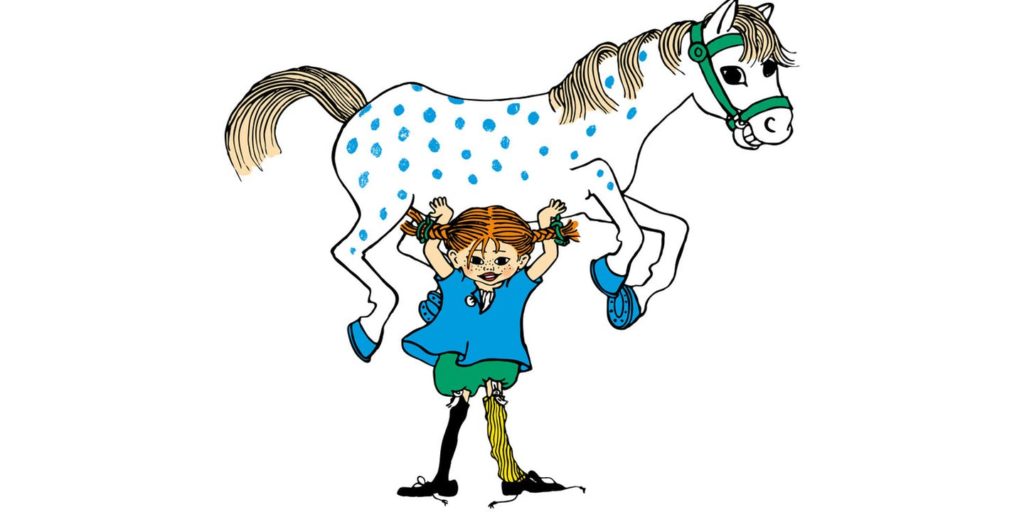I don’t remember when I read Pippi Longstocking for the first time. But I do know that I came across Pippi at a very young age. At that time, popular books for young girls at my age were mostly about beautiful princesses who met their Mr. Right, or orphan girls who had to go on adventures. But Pippi was just so different from all of them. This unconventional, powerful girl character just turned my concept of girl upside down.

Pippi Longstocking lifting her horse without the slightest effort. Image courtesy Astrid Lindgren.
Pippi is the protagonist in Swedish author Astrid Lindgren’s children’s book, Pippi Longstocking. She lived in Villa Villekulla, the house that she shared with her monkey friend and her horse. Although her mother died soon after her birth and her dad was missing at sea, Pippi was not a poor orphan that you might have imagined. First, she was incredibly rich: she had a whole suitcase of gold coins. She could easily afford any living expenses. Second, soon it would turn out that Pippi’s dad had become the king of a South Sea island. Pippi reunited with her dad and even hosted a huge banquet at Villa Villekulla! Third, Pippi never wallowed in self-pity no matter what happened to her. She enjoyed her freedom and independence so much that even her neighbor’s children became eager to join her life.
Most importantly, Pippi showed me that no one could define who you are except yourself. Pippi was by no means elegant or pretty like a fairy or princess. But she loved her freckles, her two braids which stuck up into the air, and her tattered clothes. She loved playing tricks and making fun of condescending adults. She was superhumanly strong – once she even lifted her horse single-handedly! She was generous, and always true to herself and others.
When Lindgren created Pippi in 1945, she wanted her to be a character who possessed the strongest power but didn’t abuse it. In other words, Pippi had boundless energy and strength, but she would never use them to bully others. For me, Pippi’s power not only stands for the literal power that was used to lift her horse, but also empowerment that could continuously affect girl readers (like me!) when they grow up. It was when I read Pippi Longstocking as a young girl that I started to realize that being a girl can possibly mean being anything – just like Pippi Longstocking.
-Yuwen Zhang
Junior Girl
Girl Museum Inc.
